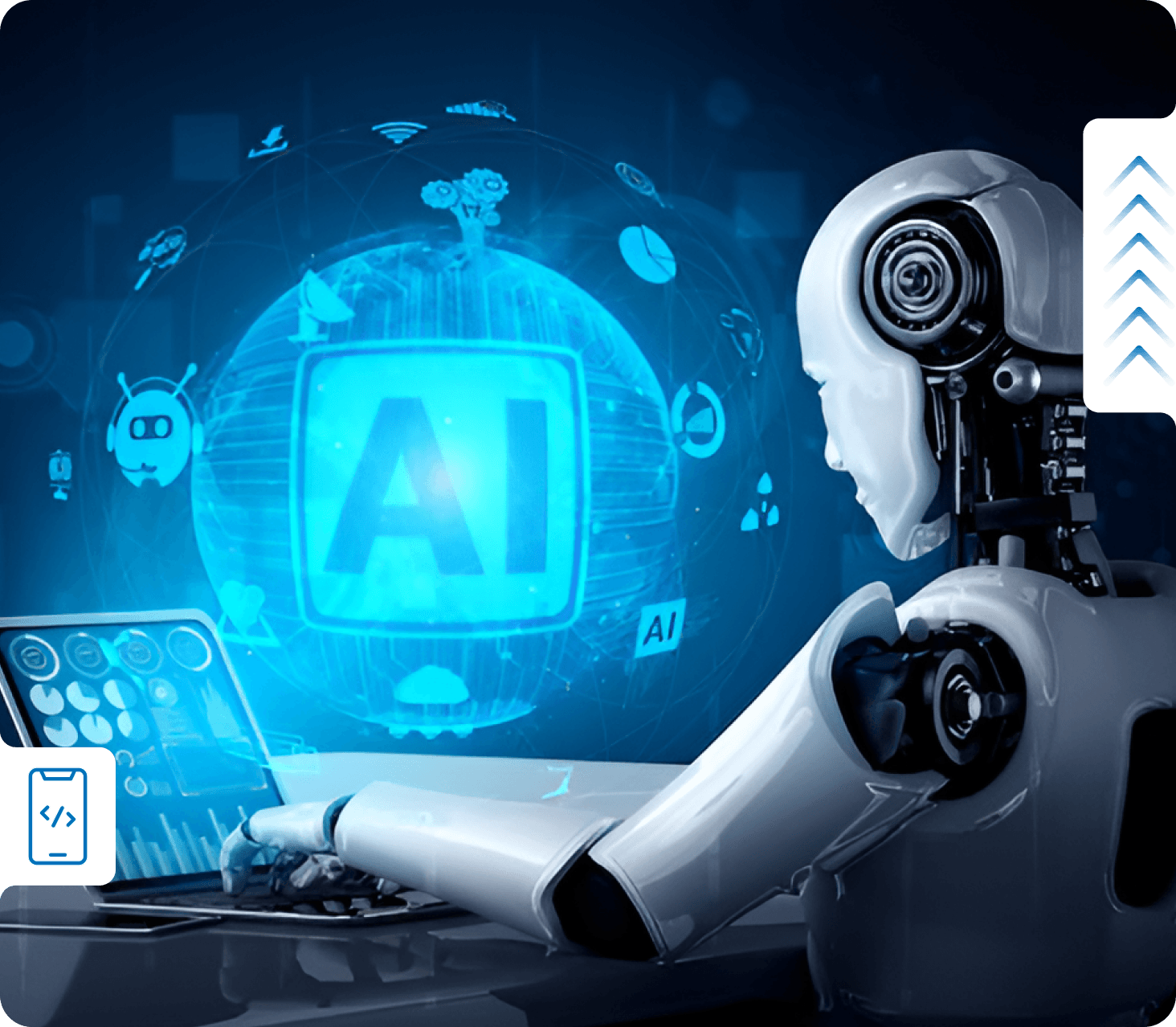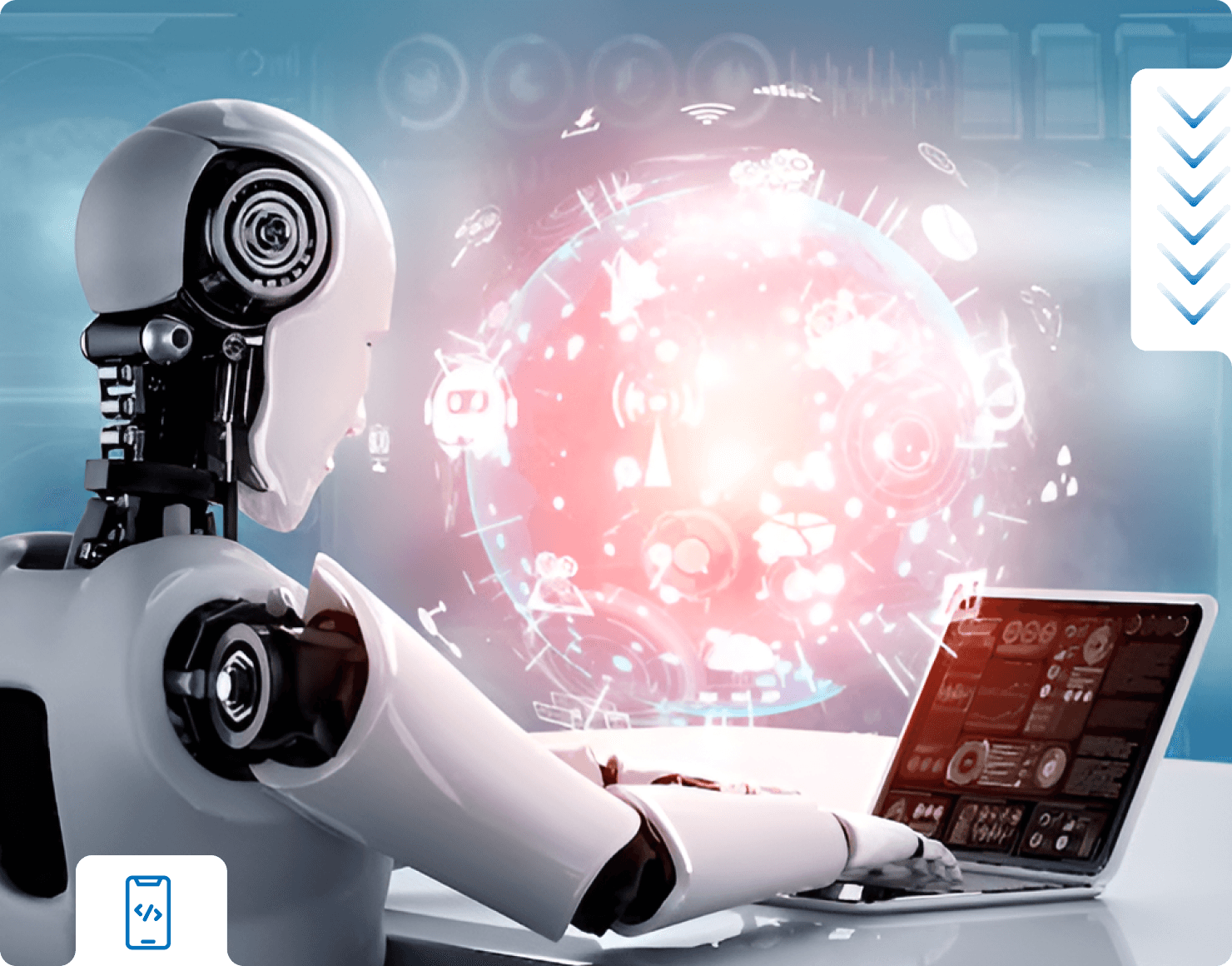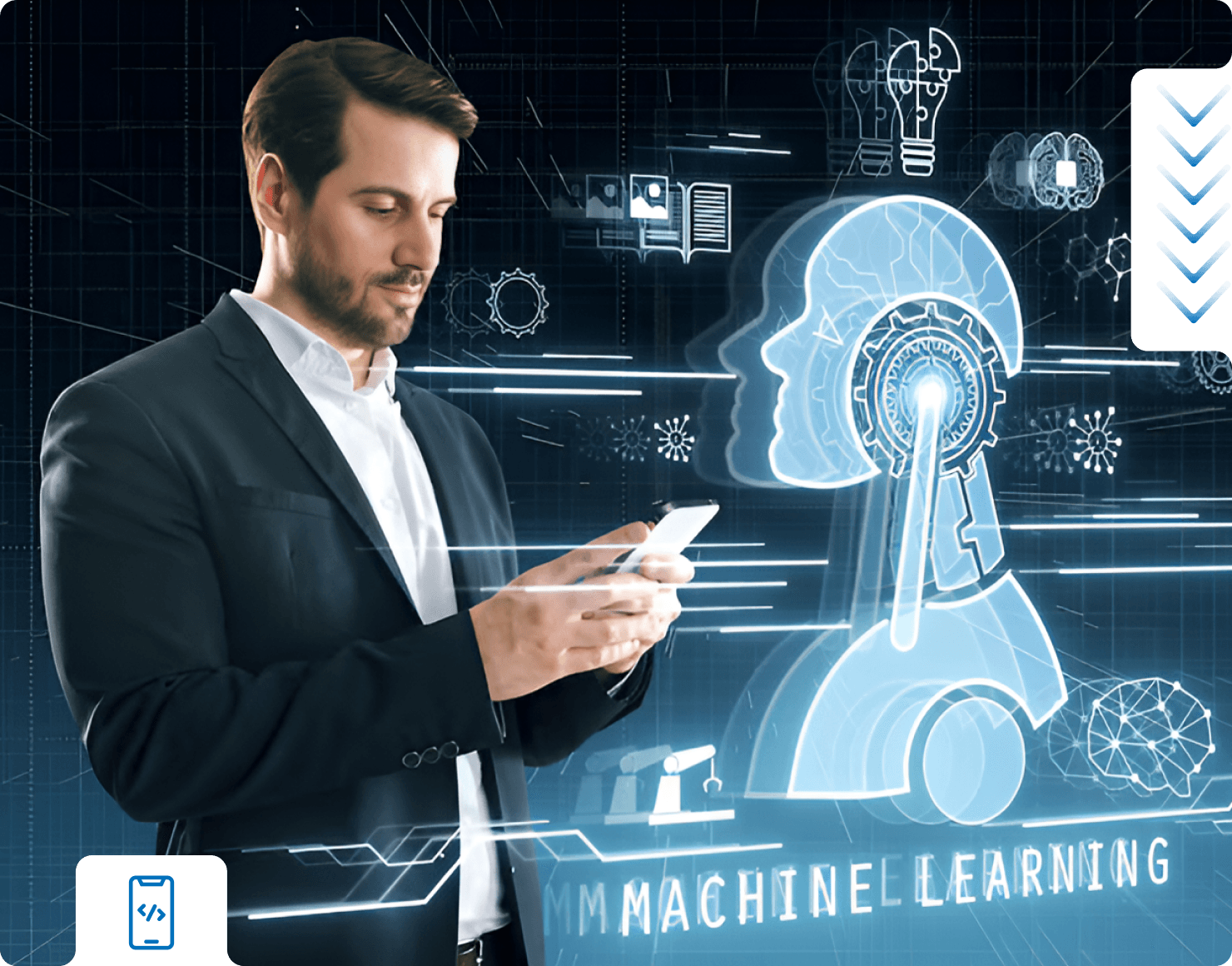
AI integration doesn’t fix broken systems — it magnifies them. When workflows are tangled, data is siloed, and decisions rely on guesswork, automation only accelerates the mess. To make intelligent automation work, we first make operations intelligent.

Repetitive tasks distract teams from high-value decisions

Repetitive tasks distract teams from high-value decisions.

Tools trigger actions, but don’t adapt to outcomes.
We re-engineer these realities. Our approach to AI and automation starts by mapping actual effort across your teams — then teaches systems to handle it. No hype. Just outcome-aware logic that helps people move faster, think better, and do more of what matters.
We don’t “add AI.” We build adaptive systems that learn from your real environment and respond in real time — with stability, transparency, and trust built in.
| What You Asked For | What We Actually Found |
|---|---|
Most teams begin with tools — voice bots, dashboards, machine learning APIs — assuming intelligence comes from technology. But automation fails not because the models are wrong, but because the workflows feeding them are flawed.
Conflicting triggers, undefined decision points, and inconsistent inputs are what derail automated systems. That’s why we start earlier — by diagnosing the rhythm of your work and the reality of how decisions are made.
Our process ensures that intelligence isn’t bolted on, but built in — so your automations reflect judgment, not just speed.

| Where Most Begin | What Goes Wrong Later | Where We Start |
|---|---|---|
In many businesses, AI optimization starts as a side project. Analysts test tools, engineers plug in scripts, and leaders hope for improved productivity. But without a cohesive strategy, these efforts drift — disconnected from the core flow of work.
We approach business AI solutions and automation as a coordinated upgrade to how decisions are made, how time is spent, and how systems respond in real conditions. It’s not just about speeding things up — it’s about elevating judgment, reducing noise, and giving your team room to focus on what really drives value.
Each automation service we offer tackles a specific friction point — whether it’s reactive customer support, time-heavy manual checks, or data insights trapped in silos.
Our job? Make sure your AI works with your business logic, not around it — and deliver automation that holds up under pressure, scale, and change.

We build chatbots that respond, not just reply — they comprehend your inputs. Our systems are trained to handle ambiguity, answer questions intelligently, and juggle a high volume of questions without sacrificing quality. Designed to integrate into your service workflow, our assistants lighten the load on teams while accelerating response times for customers and internal users.

Train bots with domain-specific expertise so they understand how your company functions, not just the language.

Integrate NLP models into CRM, HR, or support systems to retrieve answers and initiate workflows in real time.

Have processes and contingency plans for escalating issues so that complex issues reach individuals in a timely manner.

Assist other language speakers without replicating the same processes.

Create versatile characters and a consistent tone for all channels and audiences.

Measure success in response accuracy, resolution rates, and user satisfaction loops

Our predictive intelligence systems don’t just analyze — they anticipate. Using structured data models tailored to your business, we enable smarter forecasting, resource planning, and operational agility. These tools surface early signals, identify risk patterns, and guide teams toward better outcomes before problems occur.

Build machine learning pipelines on your historical data to forecast demand, risk, or churn with high accuracy

Combine structured and unstructured data sources for a fuller decision context

Tune models iteratively based on live performance — not just one-time training

Deliver insights through visual dashboards, APIs, or triggered alerts in your workflow

Enable decision support tools for teams — not just predictions, but action-ready recommendations

Align every model output to a real-world impact: revenue, time, cost, or risk

We go beyond traditional rule-based RPA by embedding contextual awareness and conditional logic. These automations don’t just mimic clicks — they understand the purpose behind the steps, adjust to variations, and scale with your data complexity.

Map out manual-heavy, rule-driven processes that can be automated without disrupting compliance

Embed document reading, form parsing, and data classification into automated steps using AI

Build audit-ready logs so every automated action is traceable and reversible Implement cross-platform automations — across legacy tools, web apps, and internal systems

Add condition handling and exception flows for real-world edge cases

Ensure every bot integrates cleanly into your workflow — no more siloed scripts or patch fixes
We don’t choose tools based on trends — we choose them based on how they scale, adapt, and align with business logic. Whether it’s automating workflows, training predictive models, or designing intelligent assistants, our tech stack is selected to perform in real-world scenarios — not just labs.

Use when: You need models that learn from business-specific data, improve over time, and deliver predictions that make sense in context.

PyTorch

TensorFlow

Hugging Face Transformers

ONNX

MLflow

Supports supervised and unsupervised learning pipelines

It can support both supervised and unsupervised pipelines

Easily customizable for specific tasks

Complete control over versions created

Exportable to edge devices or APIs with ease

Open model formats (ONNX) enable flexible deployment across platforms

Use when: You're automating workflows that require logic, decisions, and exception handling — not just task repetition.

Apache Airflow

Temporal.io

n8n (for low-code scenarios)

Celery (for distributed task queues)

Python + FastAPI for orchestration

Define complex task flows with conditional branching and retries

Support for event-driven or schedule-based automation

Easy integration with databases, APIs, and messaging systems

Native observability into job status and failure handling

Scales well across distributed environments

Use when: You’re building systems that understand, respond to, and learn from human language — chatbots, virtual assistants, or smart search.

LangChain

OpenAI APIs (custom fine-tuned models)

Pinecone (for semantic vector search)

Streamlit (for rapid NLP interfaces)

Rasa

Streamlit (for rapid NLP interfaces)

Context-sensitive memory chains and embeddings enable intelligent dialogue

Retrieval-Augmented Generation (RAG) configurations enhance relevance and minimize hallucination

Feedback loops assist the system in retraining through what people do.

Modular constructions allow for simple reorganization of models or processes.

Pre-configured cloud and on-premises environments for use.

Use when: Speed matters — predictions must happen instantly, whether it's fraud detection, dynamic pricing, or customer routing.

Kafka

Redis Streams

NVIDIA Triton Inference Server

BentoML

Prometheus + Grafana (for monitoring)

Microsecond-level inference using GPU-accelerated serving

Parallel processing of events across large streams

Scalable deployment via Kubernetes or serverless

Real-time monitoring of prediction latency and throughput
We’re here to talk through your priorities and help move things from intent to impact.

It varies widely depending on the complexity of your workflows, the quality of your data, and the depth of integration. We start by identifying where automation will drive real value, then offer a staged plan based on scope, performance goals, and system readiness.
Absolutely. Intelligent automation isn’t about size — it’s about where time is leaking and decisions are repetitive. Even small teams can benefit from streamlined processes, especially when resources are stretched.
First, we map your operational flow — pinpointing decision points, data gaps, and manual routines. Then we design the logic: models, rules, or scripts. After that, we implement automation with monitoring layers, feedback loops, and adaptation mechanisms for edge cases.
Simple automations can be live in a matter of weeks. Larger initiatives — like intelligent routing or predictive analytics — may require staged rollouts, especially if data readiness or team training is involved. We work iteratively so value is delivered early and improves continuously.